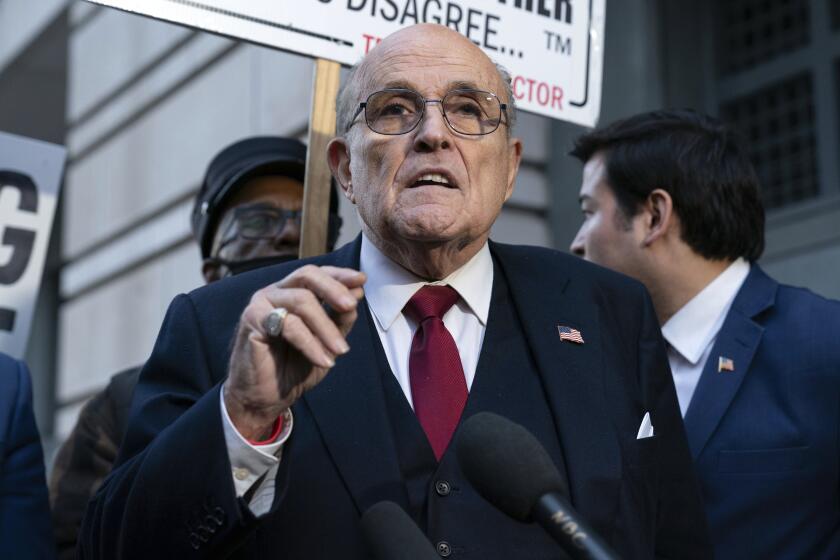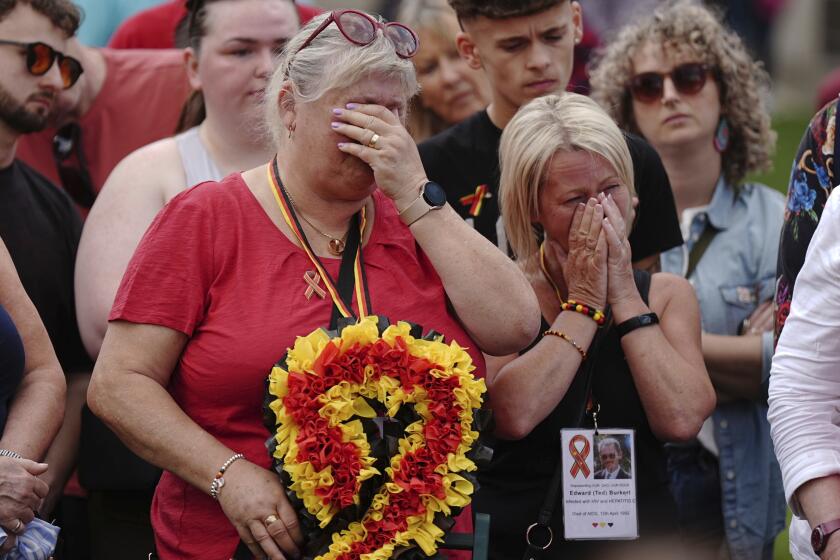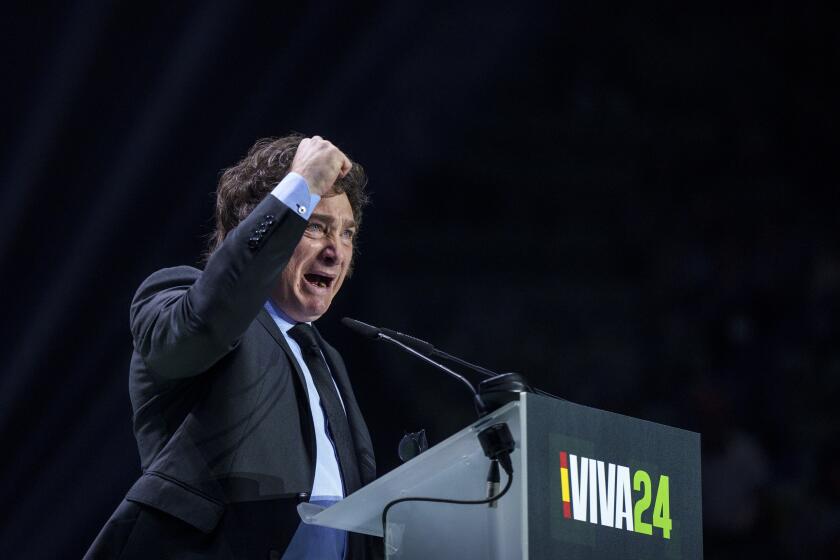What PLO Tells Faithful, Not What It Says to U.S., Shows Folly of Recognition
A former U.S. ambassador to Moscow, Malcolm Toon, once warned against taking seriously what leaders of totalitarian societies say in the West: Being accountable neither to a free press nor to a representative government, they could lie with impunity. What should be listened to, he asserted, was what they said among themselves.
Last week the United States failed to heed this caveat. Like a patient schoolmarm, it carefully coached Yasser Arafat in what it wanted him to say, flunked him several times for incomplete formulations and finally awarded him a passing grade for “getting it right” at a press conference in Geneva. Blithely, it ignored the assurances given by Arafat’s top associates in Arabic to Arabs. Abu Iyad, the Palestine Liberation Organization’s No. 2 official; Ahmed Abdul-Rahman, Arafat’s chief spokesman; Farouk Kaddoumi, the PLO foreign minister, and others all solemnly swore that the changes in Arafat’s language were purely tactical and that the ultimate goal--replacing Israel with an Arab state--remained intact.
In explaining this change of tactics, Abu Iyad referred to the “policy of phases” that was formulated by the PLO in Cairo in June, 1974. It was a program developed after the wars of 1967 and 1973 made it clear that the scenario of Saladin throwing the crusaders into the sea was not readily repeatable. Instead of an all-out assault, it envisioned a step-by-step process: The PLO would accept less than all of Palestine, but only as a base from which it would more easily attack Israel. It would strive to divide and lull Israel by talking peace until it was ready for the final attack.
For 14 years the program was relatively dormant. Its realization required the kind of diplomatic maneuvering and subtlety of language that could have been interpreted, by the less sophisticated PLO chieftains, as treason and cost Arafat his life. What made it suddenly viable was the climate of rapprochement between the superpowers. The Soviets, hungry for Western aid for their failing economy, have succeeded in creating an atmosphere in which the settling of regional conflicts seems attainable. It has persuaded the United States, tired of the endless Arab Israeli conflict and embarrassed by Israel’s inability to quell the intifada , to buy the old Soviet idea of a U.N.-sponsored international conference to resolve the problem. And, as the PLO’s main political sponsor, Moscow has persuaded Arafat to meet the Reagan Administration’s requirements for legitimacy--and thus assure PLO participation in the international conference--by pronouncing the magic words in Geneva.
The only trouble with this Soviet diplomatic coup is that America’s announced basic goals--the cessation of terrorism and the preservation of Israel’s security--cannot be attained under its conditions. Terrorism will not stop. Arafat has said as much. Less than 48 hours after satisfying the United States in Geneva, he declared in Bucharest that “resistance inthe occupied territories” would continue until the Palestinian flag was raised over Jerusalem. Such “resistance” includes daily assaults with gasoline bombs and stones on moving civilian vehicles. The casualties have included women and children burned alive, and more than 1,000 severely injured.
Within the same 48 hours, a terrorist unit trying to infiltrate Israel was interceptedat the Lebanese border, and Abu Iyad announced that the “armed struggle” inside Israel would also continue. Henceforth, Arafat will undoubtedly disavow any connection with the more heinous acts. He may even condemn them. He has done so in the past. In the 1970s he claimed that Black September, responsible for the massacre of the Israeli athletes in Munich and the torture-murder of American diplomats in Khartoum, was an independent organization. Later he proudly declared that the organization was under his direct command. Today there are four such organizations, in addition to the major Fatah, under Arafat’s command: the Western Front, Force 17, the Hawari apparatus and the Palestine Liberation Front, which was responsible for the Achille Lauro hijacking. All these organizations have committed terrorist acts inside and outside Israel. They may change their names now, but they will continue their activities. American recognition of the PLO will make it difficult to persuade them that terrorism does not pay.
The international conference, too, is a chimera. Its purpose is to cause an Israeli withdrawal to the 1967 lines, which would inevitably result in the establishment of a PLO state between Israel and Jordan. No Israeli government can accept what 80% of Israel’s population believes constitutes mortal danger to the state.
Washington’s ill-conceived recognition of the PLO has done more damage to America’s credibility as a leader in the war against international terrorism than the arms-for-hostages deal with Iran. Touted as a breakthrough toward peace, it has actually retarded the peace process. For if there is any hope for progress, it is in negotiating with the representatives of the local population in Judea-Samaria (the West Bank) and Gaza who, as Israeli Defense Minister Yitzhak Rabin has put it, are not wedded to the PLO covenant that calls for Israel’s destruction. By recognizing a PLO leadership still very much wedded to this covenant, Washington has dealt a severe and utterly unwarranted blow to the prospects for peace.
More to Read
Start your day right
Sign up for Essential California for news, features and recommendations from the L.A. Times and beyond in your inbox six days a week.
You may occasionally receive promotional content from the Los Angeles Times.






